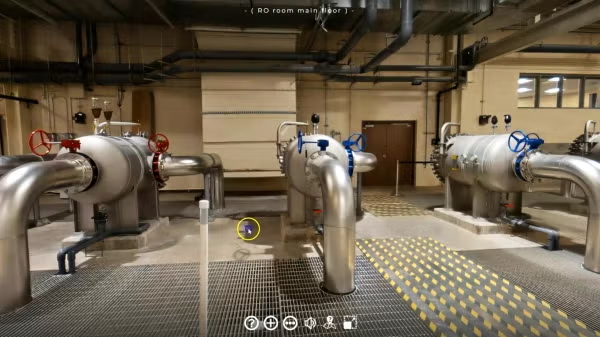DOE appoints engineering prof to advise on US industrial emission reduction efforts

The U.S. Department of Energy’s efforts to protect the environment by curbing harmful greenhouse gas emissions produced by U.S. industry will involve making use of the expertise of scientists and engineers such as Sridhar Seetharaman, an Arizona State University engineering professor. Photo courtesy Sridhar Seetharaman
Sridhar Seetharaman, Fulton Professor of Industrial Decarbonization and chief science officer in the Ira A. Fulton Schools of Engineering at Arizona State University, is among 18 new members appointed to the U.S. Department of Energy, or DOE, Industrial Technology Innovation Advisory Committee, or ITIAC. The committee advises the U.S. secretary of energy on ways to help decarbonize America’s industrial sector.
In 2020, pollution from the U.S. industrial sector produced about 10% of greenhouse gas emissions worldwide. One of Seetharaman’s goals throughout his career has been to develop technologies and strategies to reduce such emissions.
At ASU, Seetharaman has worked to enable carbon-free steelmaking, including the innovative use of evolving technologies such as plasma reactors. He is the director of ASU’s recently launched Electrified Processes for Industry Without Carbon, or EPIXC, Institute, which the DOE selected to receive as much as $70 million to help lead the challenge of reducing environmentally threatening greenhouse gas emissions from industrial process heating.
“Professor Seetharaman’s expertise and extensive contributions to contemporary problems in energy, materials science, manufacturing technologies and the associated environmental sustainability issues uniquely position him to be a valuable contributor to how we envision and design mitigation strategies that will promote a wide range of impactful outcomes,” says Kyle Squires, the senior vice provost of engineering, computing and technology at ASU and dean of the Fulton Schools of Engineering.
In his role with ITIAC, Seetharaman will collaborate with other committee members to help evaluate and develop the research, development and demonstration strategy for the DOE's Technologies for Industrial Emissions Reduction Development (TIEReD) Program, inform future investment opportunities and technical assistance programs, and help move decarbonization technologies out of the lab and into the marketplace.
Seetharaman will join science, business, academic and industry leaders to make recommendations to the DOE's Industrial Efficiency and Decarbonization Office to address obstacles and propose solutions for clean energy production. As part of that work, he and his colleagues will analyze factors that hinder the private sector’s adoption of emissions reduction technologies. ITIAC will also recommend the adoption of stringent technology screening criteria for tools and systems developed through the program to encourage the private sector’s adoption of the new technology.
The first meeting of ITIAC is March 21–22 at the DOE headquarters in Washington, D.C.
Seetharaman earned a doctoral degree in materials science and engineering from the Massachusetts Institute of Technology. He joined ASU after serving as the associate vice president for research and technology transfer at the Colorado School of Mines. Seetharaman previously served as a senior technology adviser at the Advanced Manufacturing Office of the DOE and was the Tata Steel and Royal Academy of Engineering joint chair for research into low carbon materials technology in the University of Warwick in England.
Seetharaman also served as the POSCO Professor of Materials Science and Engineering at Carnegie Mellon University and as co-director of the university’s Center for Iron and Steelmaking Research, an industry-university consortium. He was also a faculty fellow at the National Energy Technology Laboratory.
Seetharaman has authored more than 220 research papers and received eight best paper awards. He received the 2019 Extraction and Processing Division Distinguished Lecturer Award from The Minerals, Metals & Materials Society, or TMS, and earned the John F. Elliott Lectureship Award from the Association for Iron & Steel Technology and TMS in 2011 and the Friedrich Wilhelm Bessel Research Award from the Alexander von Humboldt Foundation.
Seetharaman is also an international member of the Royal Swedish Academy of Engineering Sciences and a Mercator Fellow of the Mercator Foundation.
More Environment and sustainability

Public education project brings new water recycling process to life
A new virtual reality project developed by an interdisciplinary team at Arizona State University has earned the 2025 WateReuse Award for Excellence in Outreach and Education. The national …

ASU team creates decision-making framework to improve conservation efficiency
Conserving the world’s ecosystems is a hard job — especially in times of climate change, large-scale landscape destruction and the sixth mass extinction. The job’s not made any easier by the fact…

Mapping the way to harvesting water from air
Earth’s atmosphere contains about 13 trillion tons of water.That’s a lot of water to draw upon to help people who are contending with drought, overtaxed rivers and shrinking aquifers.In fact,…

